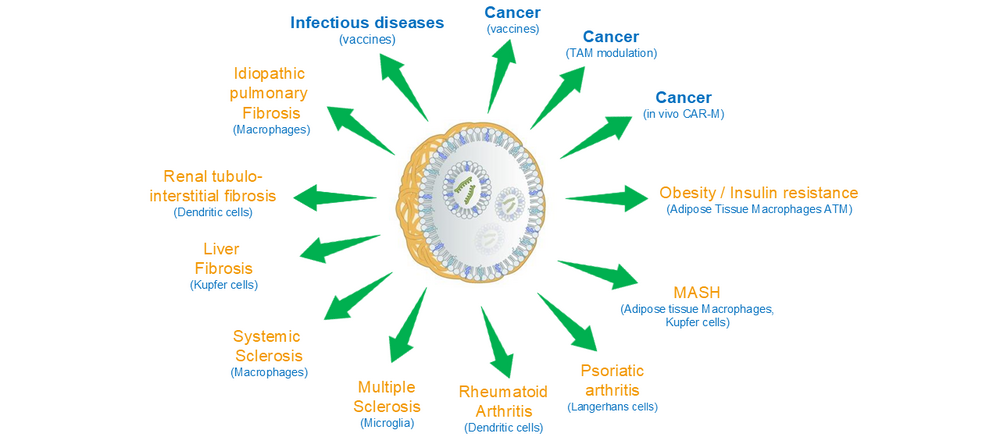Therapeutic Applications
Recent studies have shown that macrophages and dendritic cells are directly involved in many major diseases including cancer, fibrosis, viral infection, inflammation, neurodegeneration, and autoimmune diseases. In human solid tumors, DC-SIGN expression is observed in many tumor types such as liver cancer, bladder cancer, renal cell cancer, gastric cancer, head and neck cancer, and lung cancer. These cancers are potential indications for novel immunotherapies utilizing our Myeloid Targeting Platform™. In addition to solid tumors, DC-SIGN expression in macrophages has also been reported in idiopathic pulmonary fibrosis (IPF), renal tubulointerstitial fibrosis, systemic sclerosis, rheumatoid arthritis, psoriatic arthritis, viral infection, obesity, nonalcoholic fatty liver disease (NAFLD), insulin resistance, and others. Although further preclinical and clinical investigation is required, DC-SIGN-expressing myeloid cells also have significant roles in these non-cancer diseases. Selective targeting of PNP and P-LNP to DC-SIGN-expressing macrophages and dendritic cells in these pathogenic conditions offers the potential of delivering therapeutic payloads addressing these diseases.

In the healthy condition, human DC-SIGN is expressed in dendritic cells localizing in the important lymphoid organs such as the lymph node, skin, and spleen. Dendritic cells in these organs plays a central role in antigen presentation and efficient induction of anti-viral or anti-cancer immune response after vaccination. Myeloid Targeting Platform™ is therefore also useful for the efficient delivery of vaccine antigen to dendritic cells in these lymphoid organs. Indeed, PNP has been evaluated as a vaccine delivery system in a series of cancer peptide/protein vaccines in the clinical.